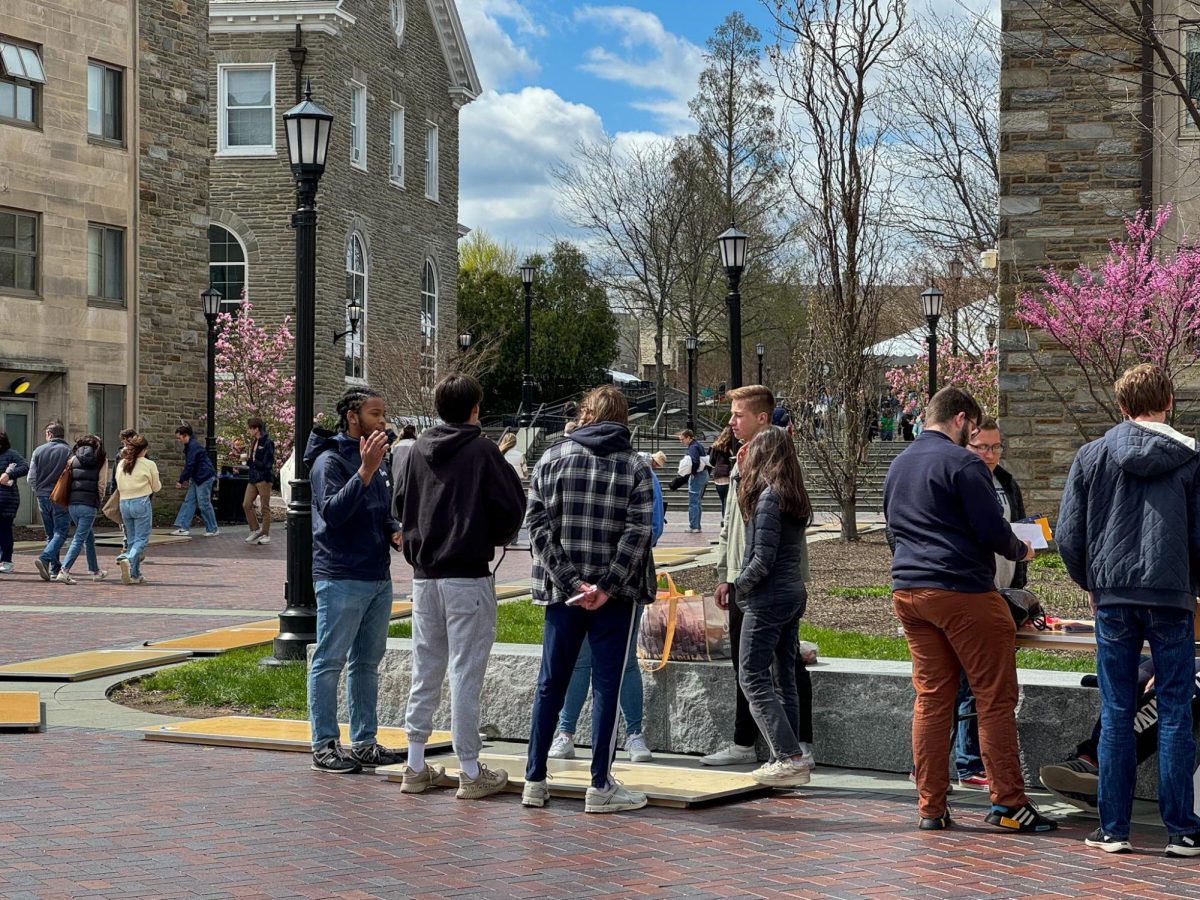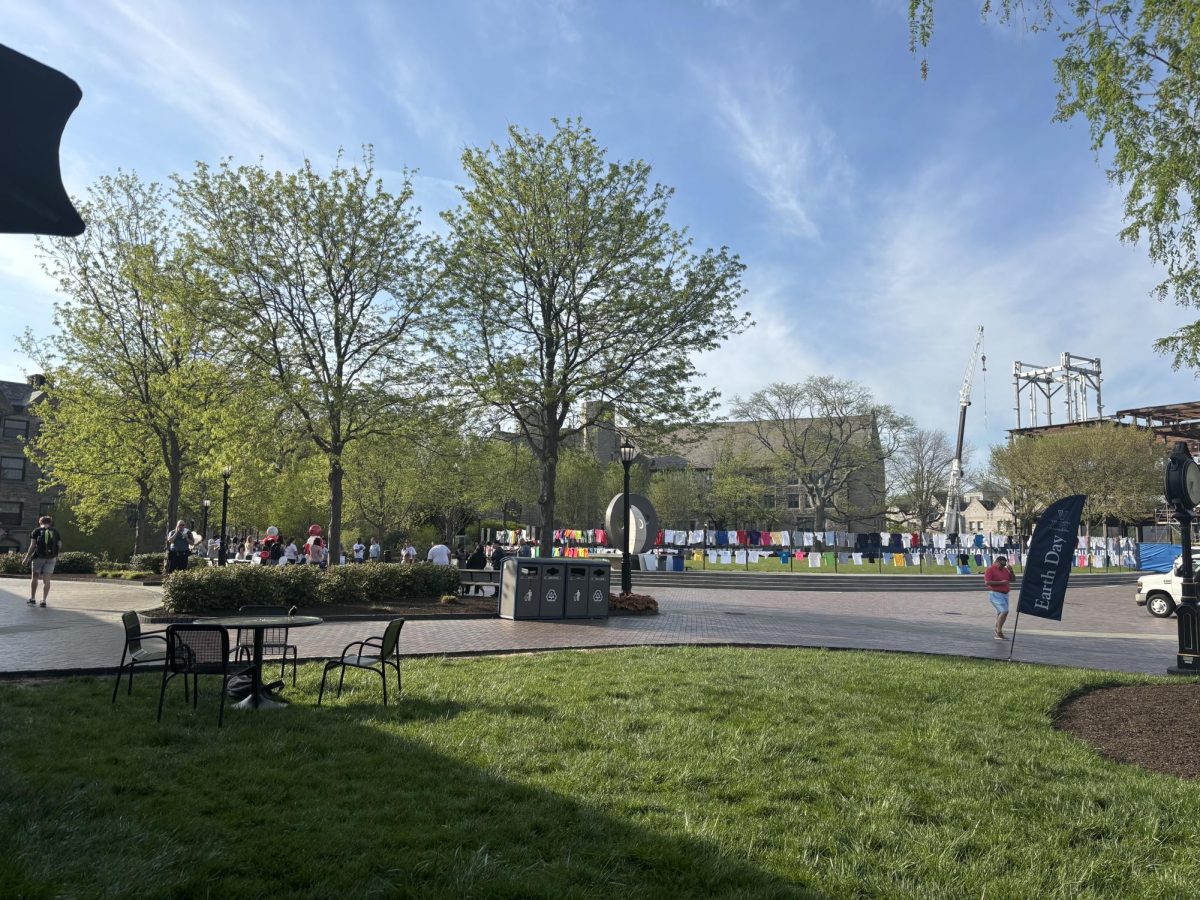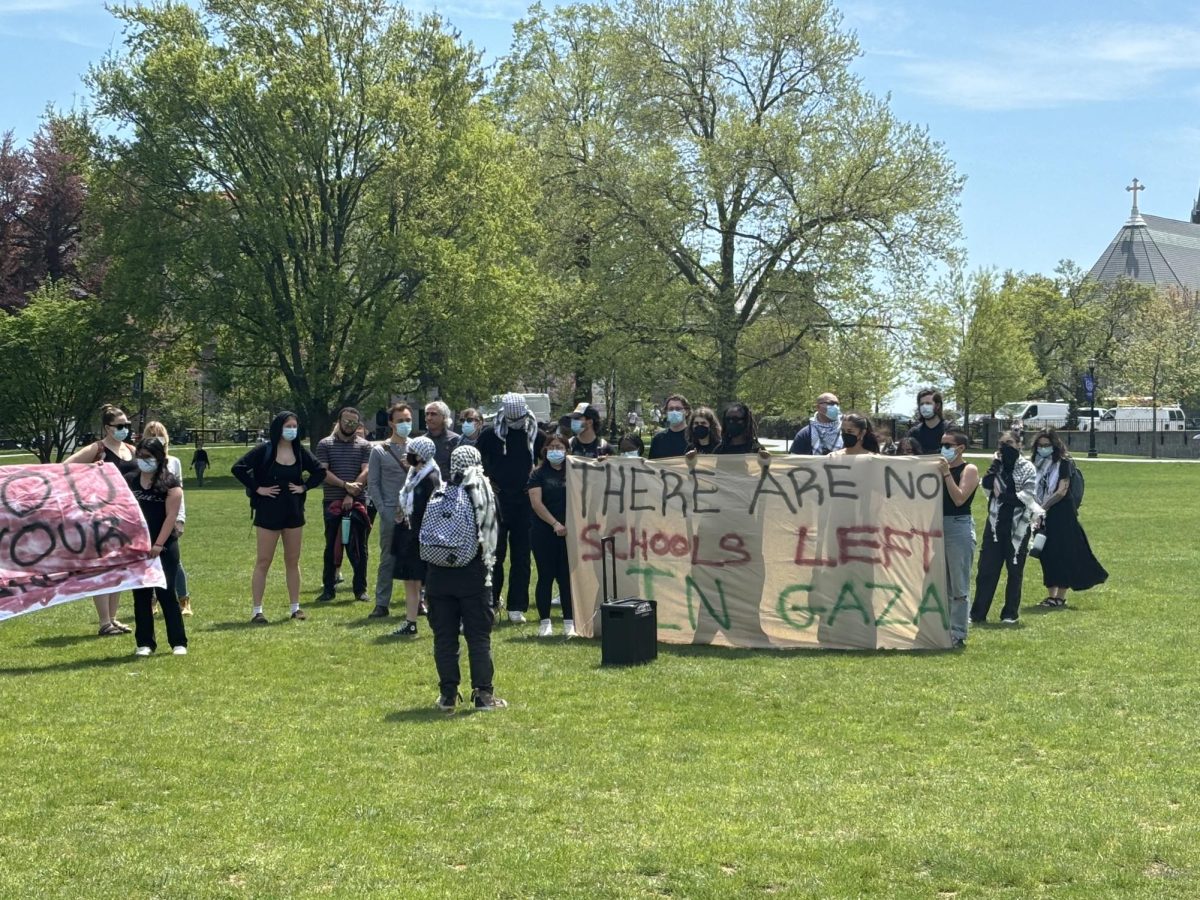Dr. Billie Murray, PhD, Villanova’s Associate Professor in the Department of Communication, assistant director for academics, Center for Peace and Justice Education, was presented with the Franklyn S. Haiman award for Distinguished Scholarship in Freedom of Expression. This prestigious, annual award is presented by the National Communication Association in honor of Haiman. The award recognizes an NCA member that produced noteworthy literary works related to freedom of expression.
Murray won the award as a result of her book, Combating Hate: A Framework for Direct Action.
Her book defines the difference between valuing free speech, while also refusing hate speech. Murray’s motivation for writing this book was to emphasize how we can recognize the difference between having a commitment to understanding democracy while also regulating hate speech used by society as well as representatives.
“[My book aims to] provide arguments about how the U.S. might rethink its stance on protecting and platforming (i.e., not regulating) hate speech in the public sphere,” Murray said. “Methodologically, it combines rhetorical criticism with a communication activist approach and provides a critical typology of the strategies and tactics different publics engage to fight hate groups and hate speech in their communities.”
The main audience of Combating Hate is the general public, as well as academics and activists who are interested in educating themselves on these current issues that are recognized in today’s society.
“This book would be of interest to scholars interested in field work and/or activist-based scholarship, or people interested in legal and ethical arguments about the First Amendment, specifically the tensions between free speech and hate speech, as well as people interested in understanding our current moment of increased hate group organizing and the ways communities respond to that hate,” Murray said.
“In our contemporary moment, the United States is the only democratic nation that does not regulate hate speech or hate group organizing,” Murray said. “In this non-regulatory context, then, the burden of combating hate is placed solely on the public in the form of providing ‘more speech’ or ‘counter speech.’”
The book places an emphasis on planning direct action among various communities outside of governmental structure across the United States of America.
“The book provides one of the first full monographs detailing rhetorical field methods in the field of communication, detailing how various communities meet the burden of combating hate speech with ‘more speech,’” Murray said.
Murray remains grateful for all that she has accomplished throughout her journey in the social justice field.
“Although I never had the privilege of meeting Professor Haiman, I have been a student of his work for my entire academic career and have worked with a number of his former students and colleagues over the years,” she said. “Every spring, I teach his timeless work on the rhetorical and legal considerations of social protest, and I have long admired his unwavering and active commitment to protecting First Amendment rights in the United States.”
Despite the fact that she has certain disagreements with some of Haiman’s work, Murray still feels as though they would have other mutual perspectives such as, persistence for free speech.
“Although I disagree with his arguments to some extent in the book, I would like to think he would have welcomed a lively, academic debate about it,” she said. “I am unbelievably honored and humbled to receive an award named in his honor.”
Another member of the Villanova Communication department, Dr. Raka Shome, PhD, who is the Harron Family Endowed Chair, received two awards: the Global Communication Award and IDEA Scholarship Award. Both of these awards are tremendous honors and reflect all of the accomplishments Shome has achieved through her work.
The Harron Family Endowed Chair in Communication serves to continuously honor the Harron family’s role in the communication department through Villanova’s professors such as Shome.
Shome is famously known for her piece, Diana and Beyond: White Femininity National Identity, and Contemporary Media Culture. The book takes a transnational feminist approach to analyze how white femininity serves as a mediating agent for modern forms of postwar interactions that take place in modern North Atlantic Western cultures. Diana and Beyond tells how this issue is a contributor to the exclusion of women from the Global South.
These achievements are significant to the dedication of the professors involved and the overall dedication that is shown within Villanova’s Communication Department. The commitment of these two professors will continue to shape and inspire the future education for students in Communication.






